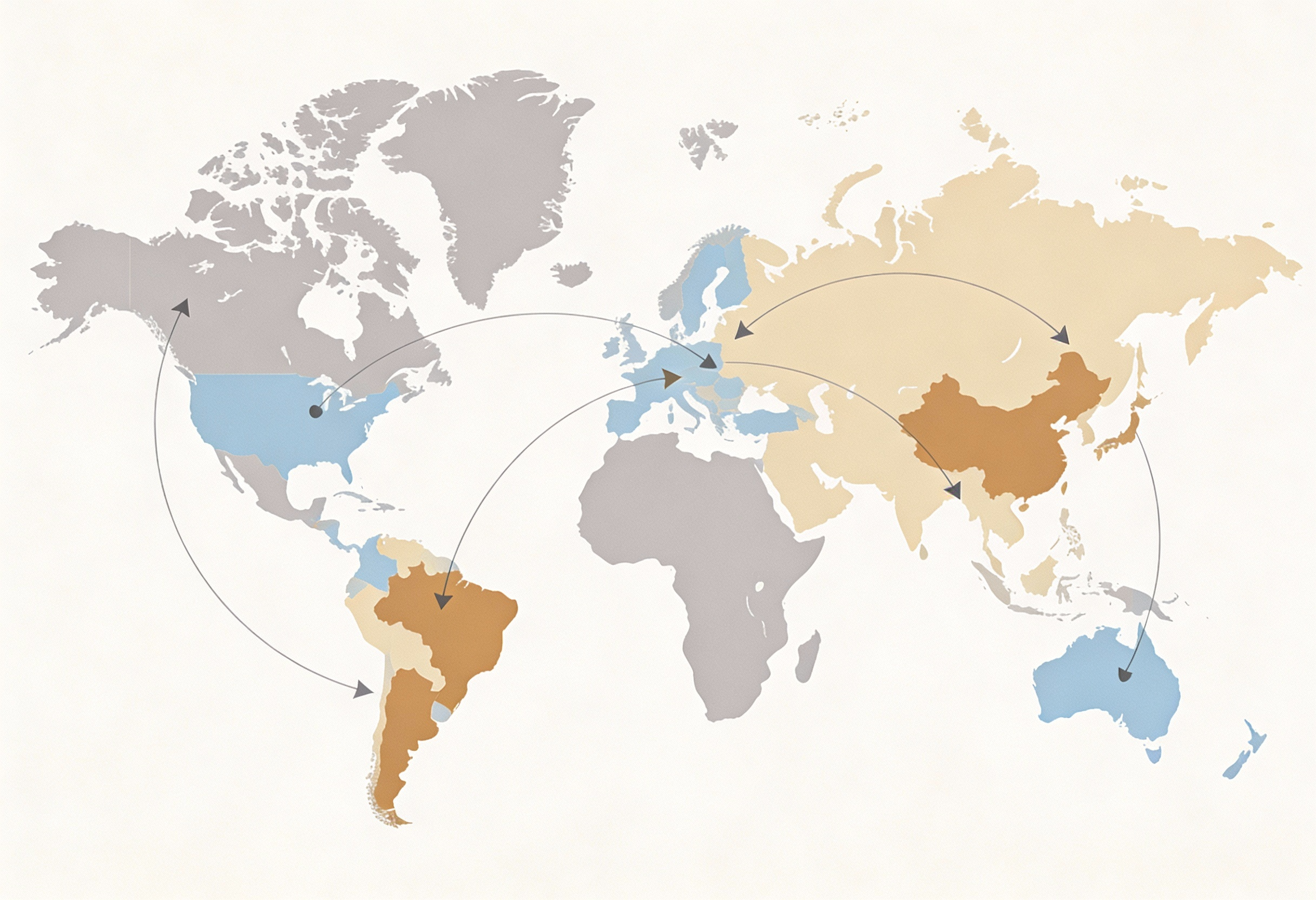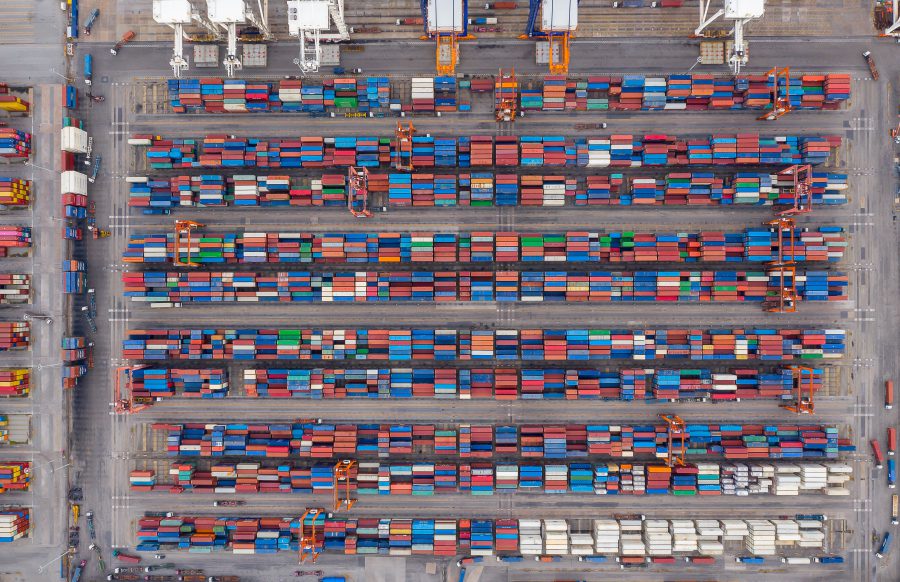Summary
In today’s increasingly digitized world, expectations from businesses are at an all-time high. Customers want same-day shipping, return policies that prioritize their needs, and high quality of personalized service. Failure to deliver on any of these points, and will take their business to a rival company that provides them with the facilities they want. Supply chains around the world are transitioning to faster and more innovative models by the day, and every company is judged by rapidly rising standards.
In this fast-changing and intensely competitive market, the challenge businesses face is that of becoming (and remaining) agile. Customer-demand levels tend to fluctuate, while supply issues also occur. Businesses need to handle both factors without negatively impacting overall service. Supply chains around the world are transitioning to ensure they can fulfill your business’s needs.
This is where third-party logistics come in to help support businesses with the smooth movement of goods and services. Given a 3PL and 4PL’s industry-specific expertise, these vendors are able to offer seamless supply chain services regardless of market conditions, while giving access to facilities, infrastructure, and know-how that may otherwise remain unavailable for businesses.
If your company also decides to embrace the rising trend of outsourced supply chain management, there are a number of factors to consider before partnering with a 3PL or a 4PL provider. As each business is unique, a qualified vendor should be ready to tailor their supply chain solutions to your exact business needs and objectives.
Index
- Does the Provider Have the Capabilities You Need to Meet Your Objectives?
- Is Their Network Large Enough to Efficiently and Effectively Satisfy Your Logistics Requirements?
- What Kind of Customer Support Does The Provider Offer?
- Does the Provider Have Experience Working With Your Industry?
- Is the Provider Financially Sound?
- Does the Provider Have a Reputation For Flexibility and Agility?
- Have the Provider’s Services Been Certified?
- Is the Provider Technologically Advanced Enough to Offer Total Transparency?
- What is the Provider’s Ideal Client?
9 Questions You Need to Ask About Your Supply Chain and Logistics Services Provider
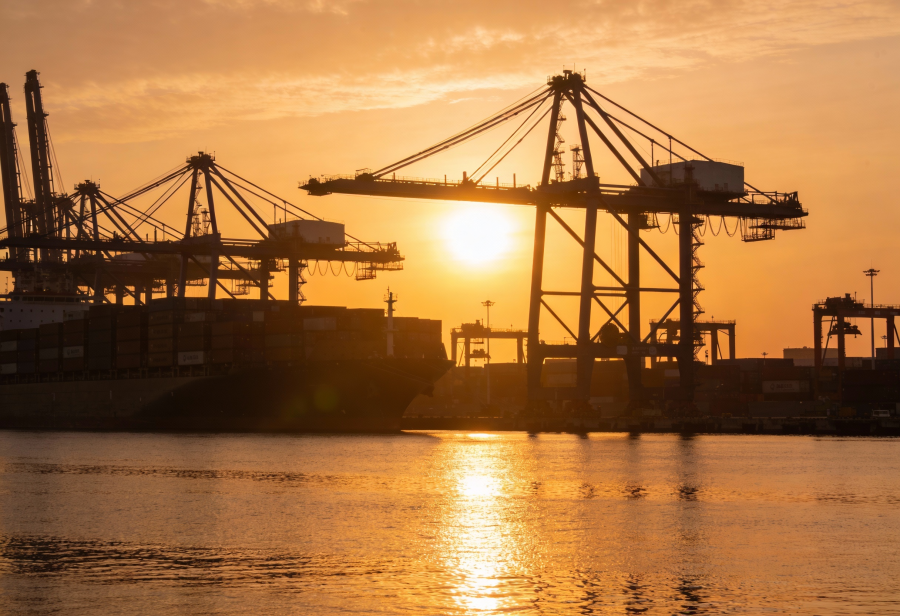

A New Supply Chain Trend: Outsourcing
In order to maintain customer satisfaction, outsourcing has advanced as a solution for optimizing the efficiency of many businesses’ supply chains.
Saving time and money
Companies are coming to the realization that inhouse management of the supply chain can be both inefficient and costly, given the fact that business managers are responsible for multiple outcomes and their generalist approach may not be best suited for this aspect of operations.
In contrast, an external supply chain and logistics management vendor offers specialized services that can quickly adapt to industry developments.
They are able to efficiently see a company’s products through development to consumer phases, which can include such distribution activities as:
- Domestic transportation
- Warehousing
- Freight forwarding


Industry expertise
Given their industry-specific expertise, these vendors are able to offer seamless supply chain services, regardless of market conditions. At the same time, outsourcing services give access to facilities, infrastructure, and know-how that may otherwise remain unavailable for businesses.
Thus, companies stand to benefit from increased efficiency and lower costs, which in turn gives businesses increased economies of scale, which can be transformed into a competitive edge over their market rivals.
Choosing Your Service Provider


Outsourcing supply chain management has emerged as a major trend in 2020. The latest research by Gartner Inc. indicated that a large majority of supply chain managers (85%) had forecast an increase in outsourcing in 2020. A significant amount of that budget will be allocated for hiring a third-party logistics provider (3PL) or a fourth-party logistics provider (4PL).
When you make the right choice of a supply chain management partner, it translates into a smooth and fruitful long-term solution for your company’s logistics. Businesses should consider it a direct investment in their future success.
If your company also decides to embrace the rising outsourced supply chain management trend, there are a number of factors to consider before partnering with a 3PL or a 4PL provider.
An external vendor should not be merely considered as a quick fix for ongoing supply chain issues. In order for businesses to reap the maximum benefits of engaging an external vendor, it is important that the hired supply chain management partner is a good fit for a company.
Scrutinizing their offering
Unfortunately, there is no secret formula to supply chain success. However, by scrutinizing the right aspects of potential vendors’ operations, you can mitigate risk and set the stage for a potentially mutually beneficial partnership.
Below is a breakdown of the questions your company should ask before hiring a supply chain and logistics services provider.
1) Does the Provider Have the Capabilities You Need to Meet Your Objectives?
Where are the gaps?
By partnering with the right vendor, your company will obtain access to highly specialized knowledge and expertise, which will go a long way in streamlining your supply chain. But before beginning the search for a 3PL or a 4PL provider, companies need to determine their exact requirements for an effective supply chain.
It is recommended that you establish a cross-functional team, drawn from the following departments:
- IT
- Distribution
- Logistics
- Customer service
The executive management should also collectively share their opinions on the gaps in your company’s supply chain. After arriving at a more comprehensive understanding of your current challenges, you can match them to your business goals to get a fuller picture of what you expect from your partnership with a 3PL or a 4PL provider.
After doing that, you can begin your hunt. With a sophisticated understanding of your requirements, you can now determine whether a prospective vendor has the capacity to meet your exact needs and if they are a good fit for your company.
2) Is Their Network Large Enough to Efficiently and Effectively Satisfy Your Logistics Requirements?
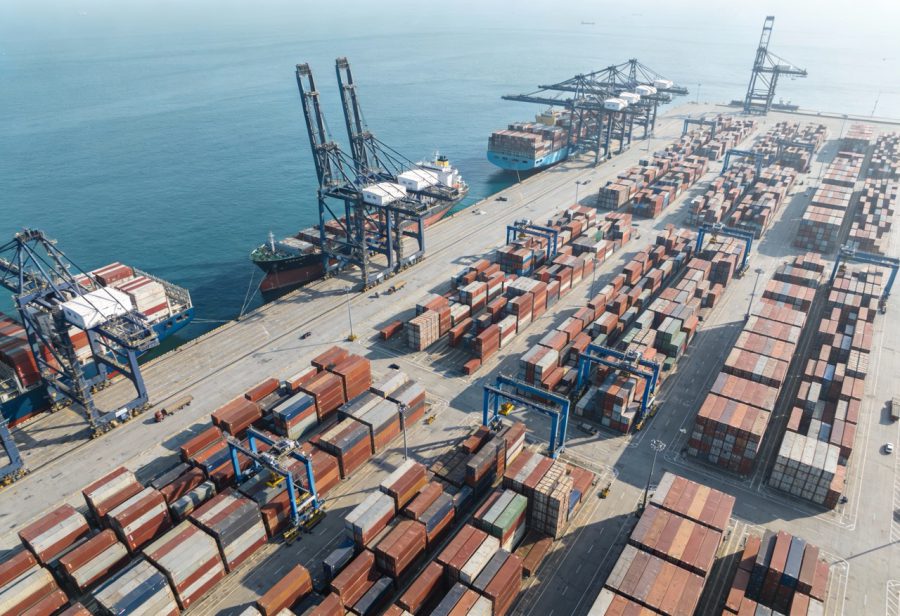

When considering partnering with a third-party supply chain vendor, two of the obvious factors to keep in mind are its location and contacts. In order for the partnership to work, the vendor must operate in the regions where you have demand and a wide range of contacts to call on for your business.
Room for growth
A worthwhile logistics company’s network of contacts should be geographically diverse enough for your business’s future growth. Because you should think long-term when partnering with a logistics vendor, it’s advisable to consider the regions where your business may expand. Determine whether you’ll require logistical support and then analyze if a prospective supply chain partner will be able to deliver in those areas.
If not, then that company is not a good fit, as you will need to engage an additional second vendor for other geographic locations. Doing so will generate unnecessary paperwork and coordination that can be easily avoided.
International logistics
In the case of international logistics, your vendor should be able to exhibit a cultural understanding of how business is done in those target locations. Work ethic, business rules, and legal requirements vary across countries and even different cities within the same country. Familiarity with these cultural nuances is an essential aspect of your ideal logistics partner’s knowledge base.
Remember if your logistics partners run afoul of international legal requirements, your company may be held accountable as well!
3) What Kind of Customer Support Does The Provider Offer?
In the fast-paced world of business, a company wants its problems addressed and questions answered on a priority basis. When a vendor is not able to deliver on that front, it can make for a very frustrating partnership and be the cause for broken agreements.
When researching options, it’s, therefore, worth the effort to inquire about the customer support offered by a vendor.
If they have outsourced it, you are likely to be stuck having long phone conversations with a person who may not even be familiar with your business environment and market conditions. Add to that the nuisance of different business hours and the potential language barrier, and you’ll quickly see that this vendor is not a good fit for your company.
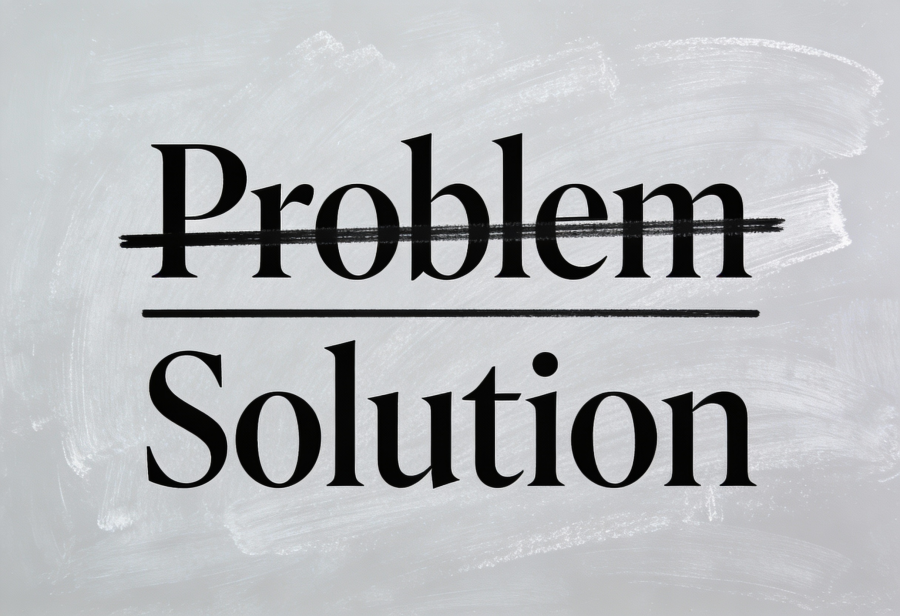

In contrast, a vendor that mobilizes a support team on your first call and promises rapid resolutions of any supply chain issues is a worthwhile partner for your business.
This vendor should also appear ready to consider your feedback when fine-tuning their service offerings in the future. It shows that they are motivated to win your business and will strive hard to retain your company as its customer.
4) Does the Provider Have Experience Working With Your Industry?
When reviewing the portfolio of prospective logistical partners, consider what kind of industry experience is demonstrated by their customer profiles.
Of course, the basic requirements are:
- Sufficient company size to meet your demands
- Previously served other companies in your industry
- Knowledge and capacity to deal with industry-specific demands
A good choice of logistics partner will have previously catered to businesses with your order volume and larger, to accommodate for your business’s future growth. A portfolio consisting of several large clients shows that the vendor has the capacity to run the business.


5) Is the Provider Financially Sound?
It is not uncommon for business partnerships to begin in good faith and, later, suffer due to poor revenue models. Before taking on a 3PL or 4PL partner, examine their financial background thoroughly.
Consider the kind of information that will give you a good sense of their financial acumen and ask for it early during negotiations. A basic set of financial documents can include cash-on-hand, outstanding debts, disaster recovery plans, sourcing areas, costs, and customer concentrations.
If a company is not forthcoming with its financial information, that is a major red flag.
6) Does the Provider Have a Reputation For Flexibility and Agility?
Supply chain and logistics vendors tend to market themselves based on industry expertise; however, it’s important to remember that there are key differences in operations even while there are similarities in pricing and distribution strategies within an industry. Each business is unique, and a qualified vendor will be ready to tailor their supply chain solutions to your exact business needs and objectives.
Moreover, the right vendor will also mold their offerings to suit the ongoing business processes at your company.
An overhaul of the complex operational systems in a business to accommodate the entry of a new logistics vendor would be an impractical and costly mistake. A vendor who is motivated to earn your business will deliver the necessary functionality and require minimal changes later on.
For this to happen, the vendor must operate using the same or greater level of technical expertise as your company.
Finally, with an increased emphasis on agile development in business these days, the vendor should also have an informed game plan for how they intend to achieve more with less and how to share those savings.
7) Have the Provider’s Services Been Certified?


Another important factor is the quality of the services rendered by external supply chain vendors. In order to determine whether their practices conform to industry standards, ask to see their ISO (or similar) certifications. This allows you to independently verify their quality of work without relying too heavily on customer testimonials or their own presentations.
ISO 9001 is one of the relevant quality management systems certifications, which attests to the provider’s compliance with regulations related to your business, as well as requirements related to quality planning, order review, and resource management.
While certifications only serve as a mark of baseline competence, they are a guarantee that the vendor’s business is standing on strong foundational practices.
8) Is the Provider Technologically Advanced Enough to Offer Total Transparency?


Modern-day logistics has gone digital and that means your company’s supply chain data can (and should be) at your fingertips. This kind of transparency is non-negotiable in this day and age.
When hiring a 3PL or 4PL provider for your company, it’s a good idea to determine whether they will be able to give your company real-time information. A good service would provide a fully synchronized solution that gives its clients immediate and accurate updates about the location of goods at all times.
Moreover, they would offer buyers access to:
- Purchasing history
- Sales demands
- Marketing budgets
- Inventory availability
- Quotations and product development requirements
Each of these empowers customers to make quick and cost-effective buying decisions, while forecasting and budgeting those accurately.
9) What is the Provider’s Ideal Client?
Finally, consider the vendor’s own company size. A vendor may be ticking quite a few of your own boxes but remember that they’re running a business too, and may screen clients based on whether they fit their own criteria.
Is your operation big enough?
Large logistics companies expect to work with high-volume manufacturers who do business on a global scale.
They may take on smaller clients, but may not offer the same quality of service, so you may find higher satisfaction with a smaller vendor that is motivated to do a good job for your company. Still, you’d have to make sure their portfolio demonstrates enough experience to handle your business.
By completing a thorough screening process when searching for your 3PL and 4PL provider, ensure your company goes into business with a logistics partner that takes your company’s productivity, profits, and reputation to the next level. To see if SBT is the right fit for your business, get in touch with us here to arrange a consultation.

